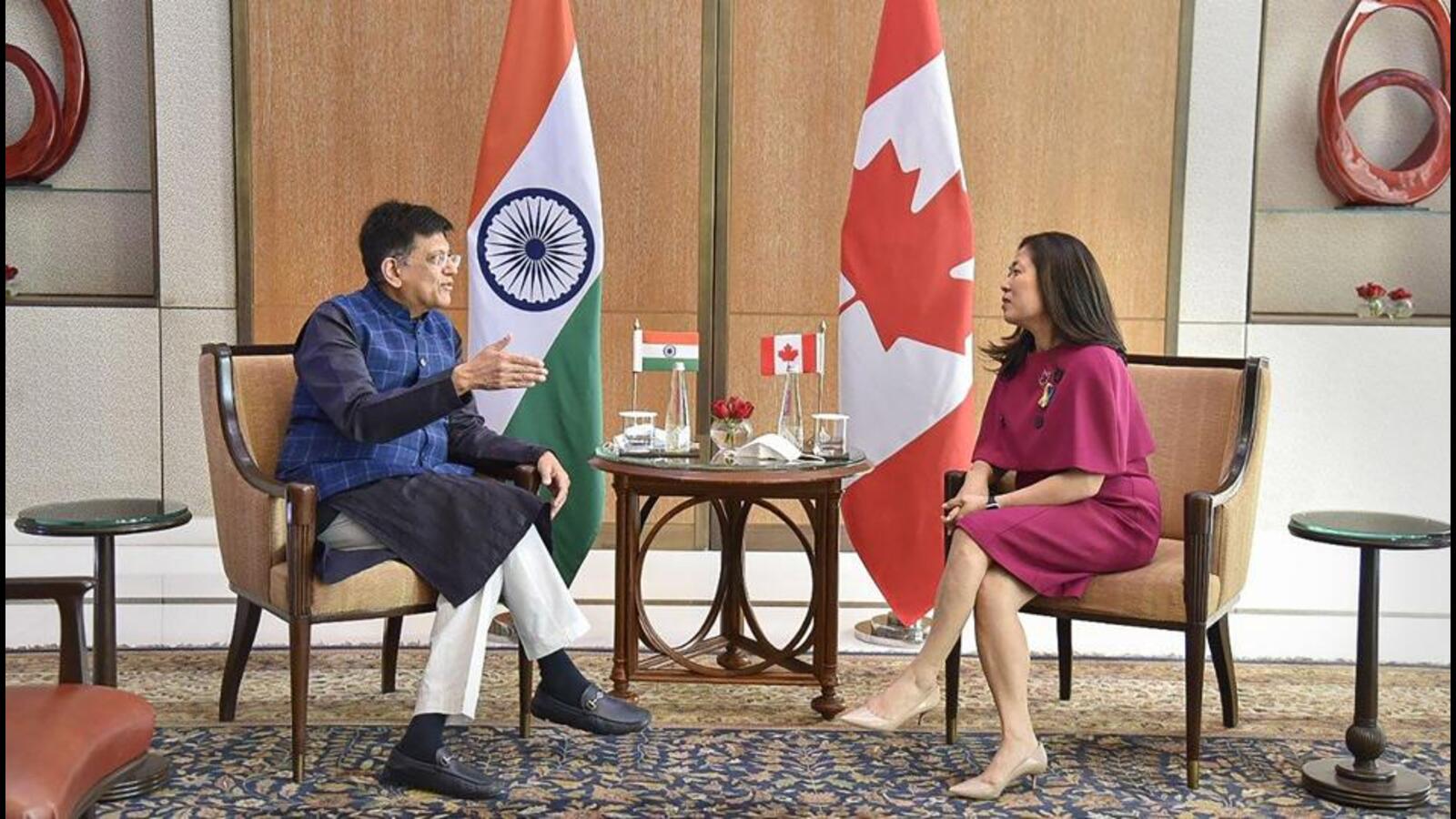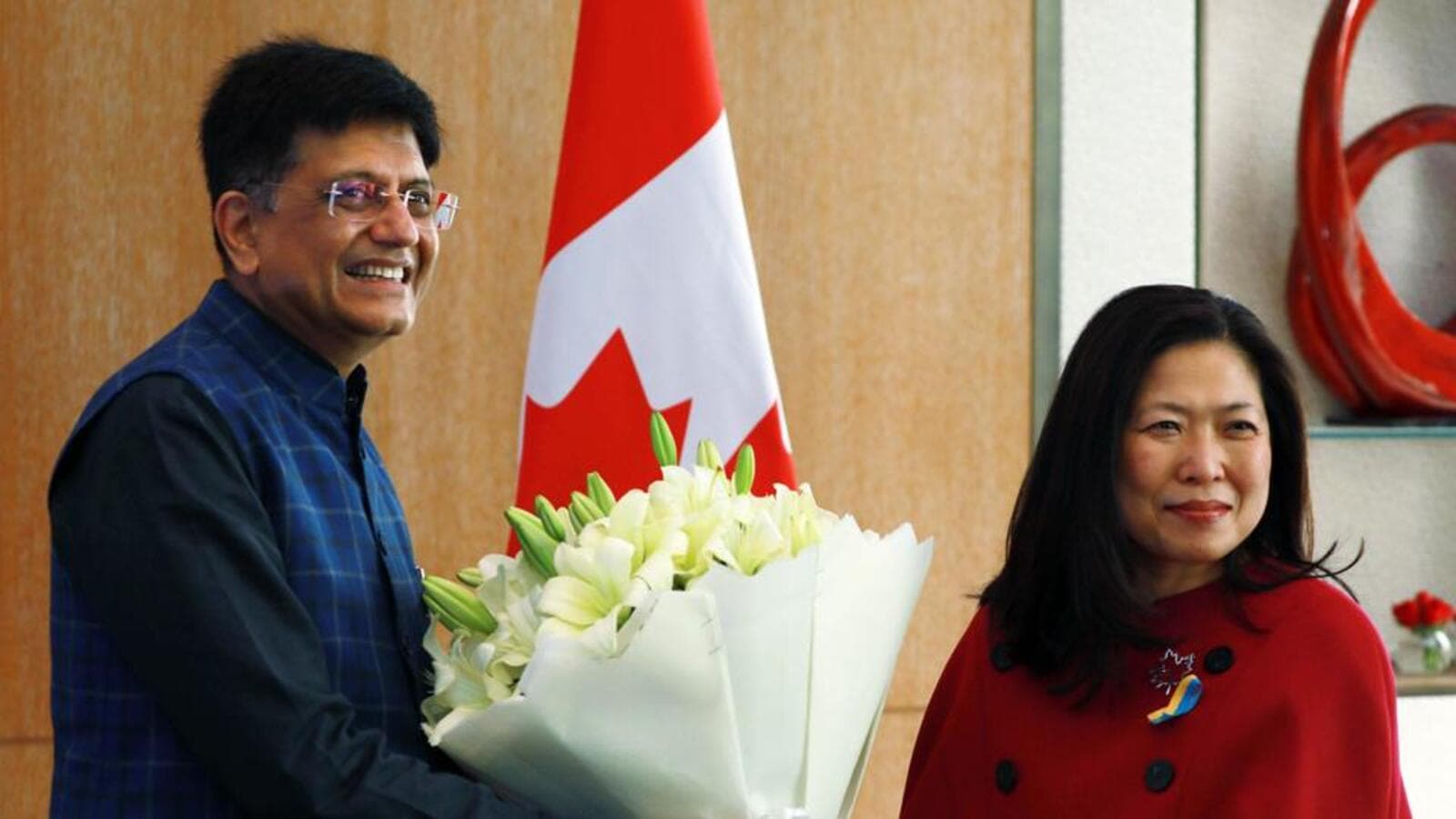
Canada-India Trade Talks Stalled Due 2023
Trade negotiations between Canada and India have hit a roadblock due to political differences between the two nations.
These talks, which were initially aimed at strengthening economic ties and increasing trade volumes, have been paused as both countries struggle to reconcile their divergent priorities and policies.

Canada and India have long-standing diplomatic relations, with trade being a significant aspect of their partnership. In recent years, both countries have expressed their desire to deepen economic ties, recognizing the mutual benefits that increased trade can bring.
Canada is particularly keen on diversifying its trade partners, reducing its reliance on the United States, and exploring emerging markets, such as India.
Aside from trade, there has been a decline in political connections between India and Canada in recent months as a result of actions made by certain radicals of Indian descent against India’s interests.
Attacks on Indian consulates have occurred, and in Canada, posters featuring images of Indian diplomats and accusations against them have surfaced.Canada accuses India of meddling in its domestic issues.

Nine rounds of discussions have already taken place between the two nations, with the most recent round taking place virtually during the final week of July.
India wants more people to have access to its traditional goods and more lax rules on professional visas. Canada wants the Indian market to be more open to its agricultural goods and automotive industry. India and Canada were also debating a foreign investment promotion pact in addition to their trade deal.
In the most recent fiscal year, commerce between India and Canada was worth $8.1 billion, with $4.50 billion in exports and $4.05 billion in imports.
Trade between Canada and India has been steadily growing, but it still has vast untapped potential. The bilateral trade relationship primarily involves the exchange of goods and services, with sectors like agriculture, energy, information technology, and pharmaceuticals being of particular interest.

Key Issues Leading to the Pause in Trade Talks
- Agriculture and Dairy Market Access: One of the most contentious issues in the Canada-India trade talks is market access for Canadian agricultural and dairy products in India. Canada seeks greater access to India’s market for its agricultural exports, including canola oil and pulses. India, on the other hand, is concerned about the impact of such imports on its domestic agricultural industry and has resisted opening up its market fully.
- Intellectual Property Rights (IPR) and Pharmaceuticals: Intellectual property rights have been a significant sticking point in the negotiations. Canada has advocated for stronger IPR protections, which could benefit its pharmaceutical industry, but India has concerns about how these protections could affect access to affordable generic medicines, a crucial aspect of its healthcare system.
- Investment and Immigration: The issue of investment and immigration has also caused tension. Canada has sought to ease restrictions on the movement of professionals and skilled workers between the two countries, which is crucial for its tech and IT sector. However, India has been cautious about the potential brain drain and the impact on its labor force.
- Geopolitical Factors: Geopolitical factors, including Canada’s alignment with the United States and India’s strategic partnerships in Asia, have played a role in the trade talks’ difficulties. The countries’ differing stances on various global issues, such as the Indo-Pacific region and climate change, have made negotiations more complex.

Potential Implications
- Economic Impact: The pause in trade talks between Canada and India could have economic repercussions for both nations. A successful trade agreement would have stimulated economic growth and created jobs in various sectors. The delay in negotiations may hinder the realization of these benefits.
- Trade Diversification: Canada’s efforts to diversify its trade partners away from the United States could be hampered by the pause in talks with India. The nation’s economic strategy might need to be reassessed, potentially affecting its long-term economic goals.
- Bilateral Relations: The strained trade negotiations have the potential to affect bilateral relations beyond just economic ties. Both countries have expressed their commitment to a strong and cooperative partnership, but political differences can strain diplomatic relations.
- Global Implications: The pause in Canada-India trade talks could also have wider global implications. It may signal to other nations that even well-intentioned trade negotiations can be derailed by political differences, potentially impacting global trade dynamics.

The pause in Canada-India trade talks due to political differences highlights the complexities of international trade negotiations. Both countries have much to gain from a successful trade agreement, but reconciling their differing priorities and policies remains a significant challenge.
As they work towards a resolution, it is essential for Canada and India to consider the long-term benefits of a strengthened trade relationship and seek common ground on the key issues that have caused the impasse. Ultimately, finding a mutually beneficial path forward is crucial for the economic prosperity and diplomatic relations of both nations.



